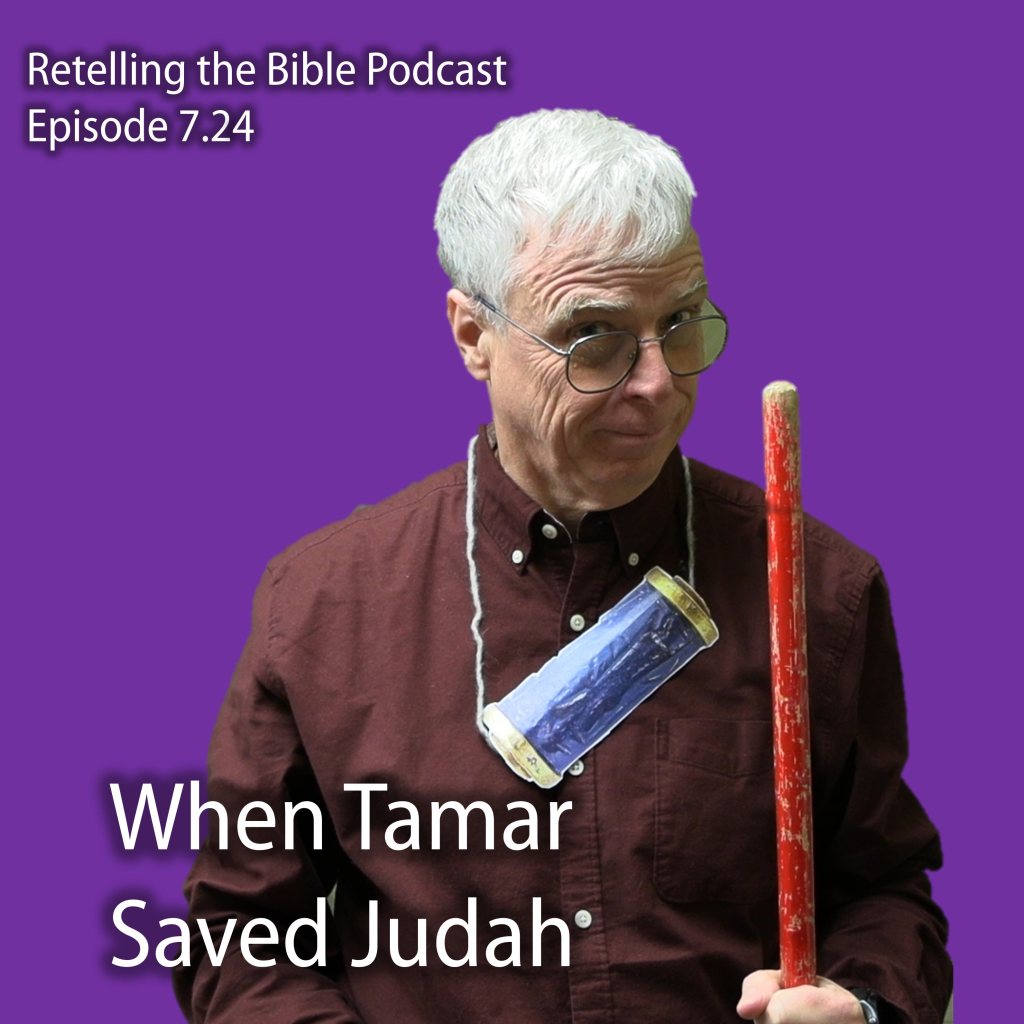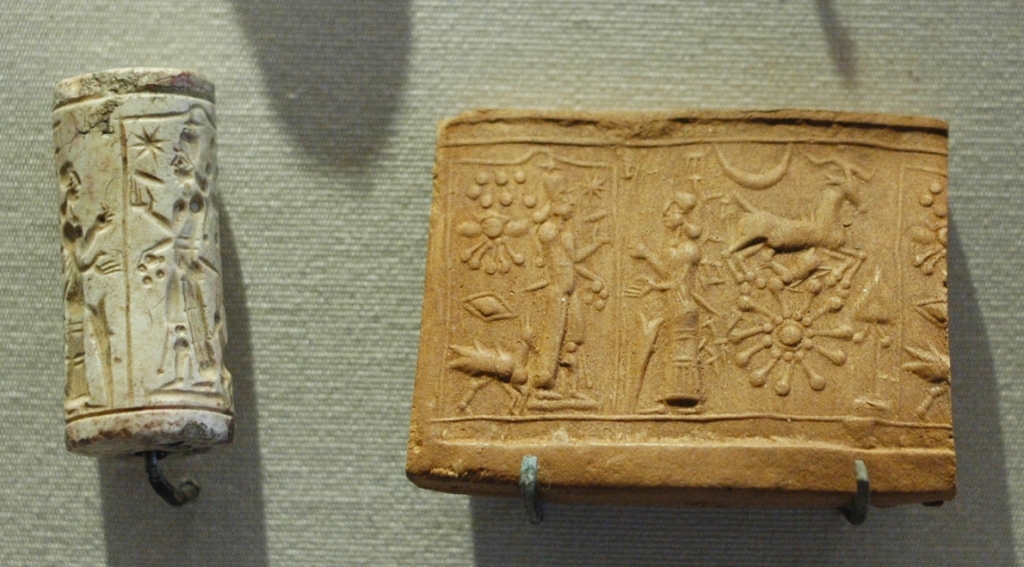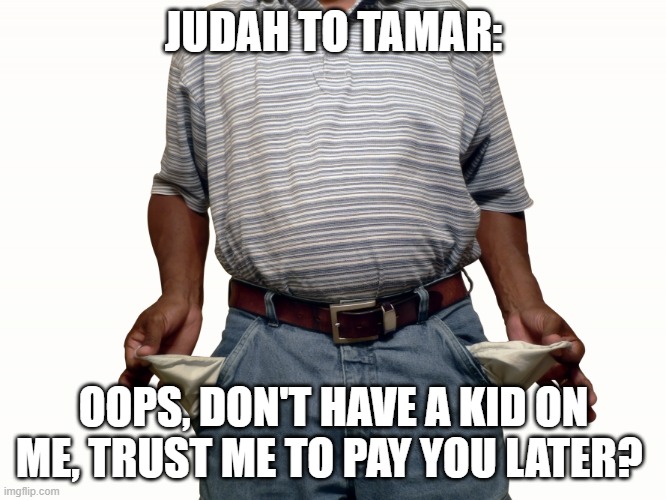
The twenty-fourth episode of the seventh season of the Retelling the Bible Podcast is posted today (November 22, 2023). It tells the story of Tamar, the daughter-in-law of the patriarch Judah, and how she saved Judah’s family.
You can listen to the episode right now and subscribe to the podcast by following one of these links or by searching for the podcast on your favourite platform:
Show Notes about the Episode
Tamar’s story is told in Genesis 38. Direct biblical quotations in the episode are taken from the New Revised Standard Version Updated Edition.
I have already done an episode based on the first part of the story, the part when Tamar is married to Er and Onan. That episode focussed mostly on Onan. You do not need to listen to that episode (#7.22 Onan, The Man with the Plan) to enjoy this one, but it is still a great story that I would highly recommend.
The trope of the infertile woman
As I mention in the episode, Tamar’s story has a great deal in common with many other biblical stories of women who struggle to produce male heirs. I have dealt with many of those stories and I’d like to offer you the opportunity to listen to those as well.
- Sarah’s is a very extreme story as her infertility seems to stretch on for decades. I have dealt with one part of her extended tale in my episode #6.15 Guess Who’s Coming for Dinner.
- The daughters of Lot also struggled to produce male heirs and their story contains many parallels to Tamar’s, including the use of trickery and incest! I dealt with their story in my episode, #2.11 The Women Formerly Known as Lot’s Daughters.
- I dealt with the amazing story of Rachel’s struggle to have children in my episode, #7.18 The Mandrake Machinations.
- The mother of Samson, despite not even being named, is definitely another heroine in this vein. I told her story in my episode, #5.19 Me, Myself and Manoah.
- I also see the story of Mary, the mother of Jesus, as another story that fits into this theme. I explored those issues in my episode #1.4 The Stranger.
Signet, Cord and Staff
One of the more interesting parts of preparing this episode had to do with learning about the meaning of the signet, cords and staff that Judah gives to Tamar.

The signet likely refers to a cylinder seal, an item very common in the ancient Near East. Many have been found. They were likely worn or carried on cords and used much as I describe in the episode.
A fascinating article by Zohar Amar and Naama Sukenik called The Signs That Bind helped me to understand, not only what is being described in the story but also the symbolic significance of Tamar requesting these particular items. The article can be found at https://library.biblicalarchaeology.org/department/the-signs-that-bind/.
Judah Can’t Pay!
One of my favourite details of the story is the part when Tamar bargains with Judah for her services but he can’t pay immediately. Couldn’t resist creating this meme!

Media in this Episode
The following music was used for this media project:
Music: AhDah by Kevin MacLeod
Free download: https://filmmusic.io/song/3345-ahdah
License (CC BY 4.0): https://filmmusic.io/standard-license
Artist website: https://incompetech.com
Music: Rising Sun by Sascha Ende
Free download: https://filmmusic.io/song/86-rising-sun
Licensed under CC BY 4.0: https://filmmusic.io/standard-license
Support Retelling the Bible
If you would like to support the work that I do creating these stories, go to patreon.com/retellingthebible and choose a level of support!









 The main reason why someone should have stalks of flax on their roof is that this is a part of a manufacturing process. In order to free up the flax fibres that are used to make linen rope, flax needs to sit and ret (that is, rot) for an extended period of time. I cannot help but feel that there is a little bit of intended humour in the account in the Book of Joshua when the spies are hidden in putrefying plant fibre. Can you imagine the smell? It certainly does help to explain why the Jerichoan authorities had been so unwilling to search the stacks for the interlopers.
The main reason why someone should have stalks of flax on their roof is that this is a part of a manufacturing process. In order to free up the flax fibres that are used to make linen rope, flax needs to sit and ret (that is, rot) for an extended period of time. I cannot help but feel that there is a little bit of intended humour in the account in the Book of Joshua when the spies are hidden in putrefying plant fibre. Can you imagine the smell? It certainly does help to explain why the Jerichoan authorities had been so unwilling to search the stacks for the interlopers. Of course, the really big question that arises from the story of Rahab stems from her betrayal of her city. Why should she protect and hide the spies who come to her in preparation for an invasion? The answer, according to the Book of Joshua, is simple: she believed that God had given the land to the Israelites and that there was, therefore, no point in resisting.
Of course, the really big question that arises from the story of Rahab stems from her betrayal of her city. Why should she protect and hide the spies who come to her in preparation for an invasion? The answer, according to the Book of Joshua, is simple: she believed that God had given the land to the Israelites and that there was, therefore, no point in resisting.